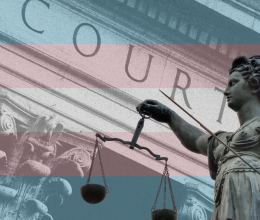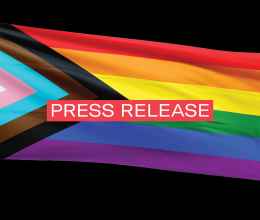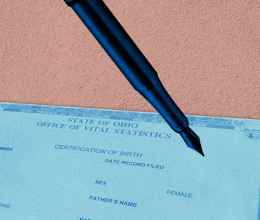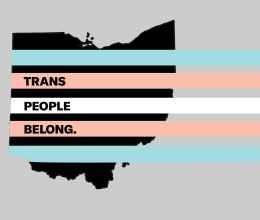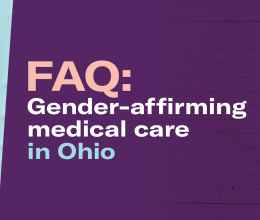The police murder of unarmed African American George Floyd at the hands of white former Minneapolis police officer Derek Chauvin ignited literal firestorms of protests, rallies, and marches demanding an immediate and abrupt course correction of how Black bodies are treated by far too many white folks in possession of badges, guns, and government granted authority to end another human beings’ life.
Mr. Floyd’s torturous eight-minute, forty-six second murder occurred on May 25, 2020 – exactly one week - just seven days - before LGBTQ+ folks worldwide were set to begin the annual month-long celebration of individual self-worth, collective joy in community, and Global Pride 2020 – albeit a little differently this year. As with countless other facets of life in this bizarre and chaotic year, 2020 Pride festivals and celebrations would not go forward in June as they had every June for fifty years. Primarily because of the global fear of the invisible floating death, COVID-19, but also in large part because of Mr. Floyd’s tragic, unnecessary, premature death. Very few folks found themselves in a celebratory mood – not even for something as important and deeply personal to LGBTQ+ folks as publicly affirming their presence, worth, contributions, and mere being to a world that in many ways continues to insist they do not exist, have no worth, make no contributions, and are less human than everyone else, simply because of who they are and who they love.
And yet, true to its intrusive, rude, ill-mannered nature, 2020 forced LGBTQ+ folks into reflection, into reconnection with our Pride roots. Just as the global pandemic thrust many relationships back into meaningful time together, employers into rethinking must-haves compared to nice-to-haves, politicians into actually governing in the interests of their constituents… the uprisings sparked by Mr. Floyd’s murder by an overzealous, overconfident police officer certain he would face no repercussions for his actions, starkly reminds Queer folks – the first Pride was a riot.
For many LGBTQ+ folks, who like me, did not embrace the fullness and authenticity of their complete selves until well into adulthood, and for many younger Queer folks who have come of age as the world experiences a blindingly fast tectonic shift of rejecting suffocating, antiquated, unfounded sexuality stereotypes, Pride events were often understood primarily as celebrations. Celebrating freedom, celebrating genuineness, celebrating – embracing – community and “family” that loved us, for us; because of, rather than in spite of, the beautiful, colorful, brilliant, expressive, unique unicorns our Creator intended us to be.
Marsha P. Johnson was one of those amazing unicorns, so was Stormé DeLarverie. Contrary to popular misconceptions held by straight folks which were entwined in notions of deviancy and drunkenness, bars and clubs, for many decades, were the only places LGBTQ+ folks could gather uninhibited, away from the brutal, cruel, discriminatory gaze of the majority straight public. In these gay bars, they could savor the embrace of their same-sex partner, boldly hold their hand, dance, enjoy a kiss – all things straight folks did, and still do, without giving a second thought to being arrested or beaten, or both. The laws of the day criminalized same-sex attraction and expression. The mafia‑owned Stonewall Inn in New York City’s Greenwich Village stood as one of the safest of these safe havens. The Christopher Street location, while still subject to the frequent and violent police raids that every gay bar dealt with, grew to become a hub for the gay-friendly neighborhood.
In the early morning hours of June 28, 1969, police shattered Stonewall’s protective shelter with a particularly barbarous and ruthless raid. The cops brutalized the patrons, dragging them out the bar, pummeling them with batons, and forcing transgender folks to expose their genitals to prove their sex.
This night was different, though. After decades of enduring these inhumane indignities, they had had enough.
Ms. Johnson, witnesses say, threw the first brick – that would, a half century later, help break the bonds of oppressive marriage inequality and employment discrimination based solely on a person’s sexual orientation, as determined by the Supreme Court of the United States.
An African American trans woman, she threw the brick in defense of her mixed-race lesbian friend, Ms. DeLarverie, who yelled to the horrified crowd as cops beat her with a baton and roughly threw her into a squad car: “take action!”
Take action they did. For the next seven days, Christopher Street and all of the surrounding neighborhood streets raged with bloody, righteous fury. Hundreds swelled into thousands of angry, fed up, LGBTQ+ folks and allies rioting for justice and fairness. Storefront windows were broken, buildings were burned – yes, property – inanimate, unfeeling, material things – were destroyed in order to focus the attention of the city’s elected officials, police, and straight population on the immeasurably unjust, asphyxiating, suffering of real, walking, talking – living human beings.
On June 28, 1970, on the one-year anniversary of the riots, thousands of people gathered again at the Stonewall Inn. They marched from Stonewall to Central Park, commemorating what was then called “Christopher Street Liberation Day,” marking America’s first gay pride parade. The crowd’s official chant “Say it loud, gay is proud” rang through the streets.
World events have postponed most 2020 Pride Celebrations. Parades and floats, glitter and dancing, relaxing and just being – secure in a safe, loving, cradling surrounding is all on hold for now. And while this is most assuredly a fact worthy of lamenting for the vast majority of LGBTQ+ folks, it also presents an opportunity. It’s a chance for Queer folks the world over to reflect on the monumental strides our community has made; to consider the unmistakable similarities between what is happening in the streets in June 2020 and what happened in the streets of Greenwich Village in June 1969; to sincerely, earnestly reevaluate how we treat, and think and care about the people of color within our LGBTQ+ family and how we can be better allies to them – to acknowledge the multiplicities of their struggle.
To remember, and never forget, the first Pride was a riot.

